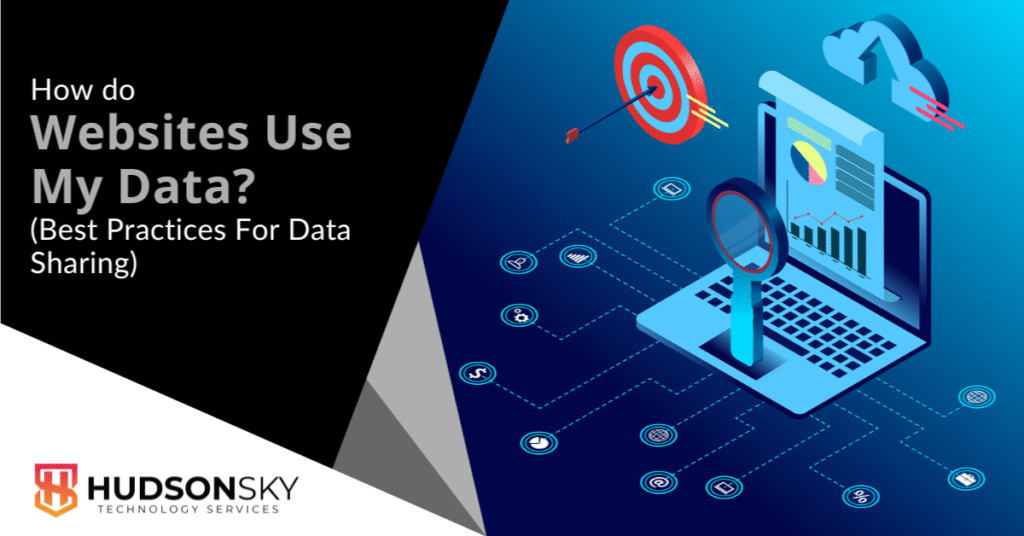What Is Data Collection on Websites?

When you visit a website, you’re not just browsing — you’re being watched. From the clicks you make to the forms you fill, websites are quietly gathering data about you. This process, known as website data collection, helps companies tailor content, ads, and user experiences based on your behavior.
Data comes in two main flavors:
- First-party data: This is the good stuff — information collected directly by the site you’re visiting, like browsing behavior or purchase history.
- Third-party data: This is gathered by outsiders like ad networks and social platforms through tracking pixels and cookies.
The problem? That data doesn’t always stay in one place. Companies often share your information with third parties — like Facebook and Google — for ad targeting and analytics. And while this can make your ads eerily relevant, it raises serious questions about transparency, security, and consent.
How Does Data Sharing Work?
Data sharing is the digital handshake between systems — but it’s not always a friendly one.
Businesses often share user data via APIs, FTP transfers, and cloud platforms. Done right, this enables innovation, personalization, and efficiency. Done wrong, it opens the door to data leaks, compliance failures, and angry customers.
Common Data Sharing Methods
- APIs: Great for real-time data exchange — but a juicy target for cyber attackers.
- Cloud sharing: Convenient and scalable, but requires strict access controls.
- File transfers: Old-school but still widely used, especially in healthcare and finance.
Each method must be guarded by encryption, access control, and regular audits — or you’re inviting trouble.
Risks and Pitfalls
- Unauthorized access: If anyone with a link can see the data, you’re doing it wrong.
- Regulatory compliance: GDPR, CCPA, and others demand transparency and user control.
- Data misuse: Just because you can share it doesn’t mean you should.
Ethical and legal frameworks should guide how, when, and why data is shared.
How Should Websites Manage User Data?
User trust is earned — and easy to lose. If your site collects data, you must manage it like a pro.
4 Key Data Management Principles
- Transparency & Consent: Tell users what you’re collecting and why. Make opt-ins crystal clear.
- Data Minimization: Don’t hoard. Collect only what you need.
- Strong Security: Encrypt data at rest and in transit. Use secure servers and patch vulnerabilities.
- User Control: Let users access, edit, or delete their data. Empowerment builds loyalty.
Bonus points for publishing a clear, human-readable privacy policy — and sticking to it.
Why Is Data Privacy So Important?
Data privacy isn’t just a legal requirement — it’s a brand reputation superpower.
When users trust you with their data, you have a duty to protect it with both technology and accountability. This includes:
- Employee training on privacy compliance
- Encryption standards like AES-256
- Tools for consent management and audit trails
Compliance = Confidence
Non-compliance with laws like GDPR or CCPA can result in millions in fines — not to mention PR disasters. Don’t roll the dice. Build a culture of compliance from day one.
Transparency Builds Trust
Be upfront about how you use and share data. Give users the ability to manage their preferences. When people feel informed, they’re more likely to stick around.
How Can Users Protect Their Data?
Users aren’t powerless. Here’s how they can fight back against invasive tracking and data misuse:
Simple Steps for Everyday Security
- Use privacy-focused browsers (Brave, Firefox with strict settings)
- Install tracker-blocking extensions (like uBlock Origin or Privacy Badger)
- Review and lock down your social media privacy settings
Tools That Put You in Control
- VPNs: Encrypt traffic and mask your IP
- Password managers: Ditch sticky notes and use strong, unique passwords
- 2FA everywhere: Always enable two-factor authentication
Stay informed. Read privacy policies. And don’t trust every pop-up asking to “accept all cookies.”
Take Action: Don’t Let Your Data Be Someone Else’s Payday
If you’re not sure how your website handles user data — or worse, if you’re pretty sure it’s not secure — don’t wait until you’re in the headlines.
At Hudson Sky, we help businesses like yours secure their websites, implement privacy best practices, and stay compliant with evolving data laws. From cookie banners to encryption audits, we make data protection practical and painless.
📧 Reach out at hello@hudsonsky.com
📞 Or call us directly at +1.312.561.0000 to start protecting what matters.